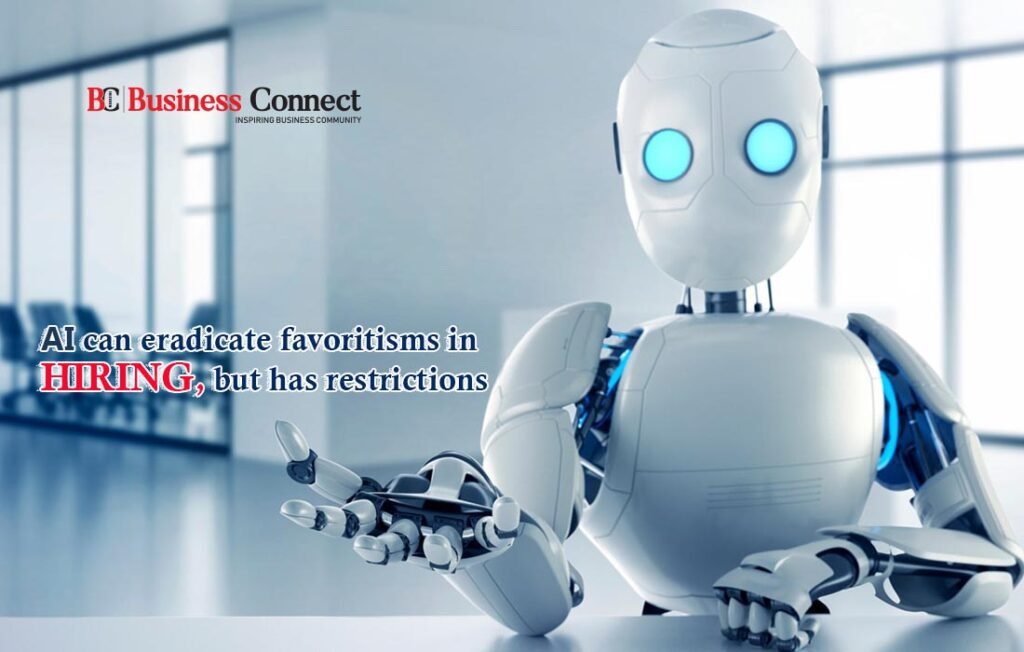Written By: Vikas Jha
AI can eradicate favoritisms in hiring, but has restrictions
For last few years, Artificial Intelligence has become the talk of the town. Every country is looking to reap benefits by means of applying the use of AI in daily lives be it banking, automation, education, medical and many others. Even in the hiring process, the technology can prove to be immense helpful.
Experts have been looking forward to make the most out of this latest technology. They are busy experimenting with all that they have learnt so far about the technology. It is still under consideration in which domains it could be applied.
Artificial Intelligence (AI) is progressively playing a vital part in human resources – both in employment and aptitude management. Nonetheless, individuals have begun apprehending that exponential technologies have restrictions but could work better with the correct data prototypes and fostering.
AI provides us the facility to get enormous quantities of chronological data and discover chunks of fact and further crucial facts that else would take creatures years. As AI offers us the aptitude to classify through immense quantities of data, it can aid find inclinations.
The test is, do those developments create functioning logic? If you assess all your front-runners and they have size 6 shoe, does that imply you only employ individuals that have a size 6 foot? AI and machine learning will articulate that is all you should do. So you have to put an appropriate component to the data analytics.
AI can aid abolish some of the favoritisms and discrimination that take place in employing and recruitment practices. In some portions of the sphere, diverse races are excluded from the hiring process simply because the hiring manager doesn’t like them.
AI may do better but the test is that modelling of historic practices could underline that discernment. You have to begin with a blank slate so that the machine learning algorithms don’t collect historical partialities.
Machines can be harmless if algorithms are served with appropriate measures for example personality data. Personality data is non-discriminatory. It is gender or age blind. Persons of diverse gender, age and color mark similar on personality-based valuations. If you are nourishing effective forecasters of enactment into the algorithm, you are avoiding the prejudice a hiring manager may have.
AI also has a part in erudition and progress. The fledgling staff needs beset, on-demand knowledge in place of wide-ranging courses. They favor growth elements around their fortes and challenges. AI can recognize micro-learning for persons rapidly.
What can AI not do when we talk about human resources? It is not HR tech, it should be human HR. Workers look for an actual creature responding to queries instead of a chat bot. We have presumed that because people use AI in their everyday lives that is what they look for when it comes to very peculiar stuffs such as occupation, earnings, and performance deliberations. We are misjudging AI’s capability to take place of a human being.
AI sources and screens applicants by means of big amounts of data. It pools these data points by means of algorithms to create forecasts about who will be the finest candidate. The human intellect just can’t contest when handling data at this enormous scale.
AI evaluates these data plugs quantitatively – devoid of the expectations, prejudices, and psychological tiredness that people are vulnerable to.
A key benefit AI has over humans is its outcomes can be verified and authenticated. A perfect applicant summary typically covers a list of talents, characters, and credentials that persons consider make up an effective worker. But frequently, those credentials are never verified to check if they associate with on-the-job enactment.
AI can make a summary on the basis of genuine credentials of fruitful staffs, which offers hard data that either authenticates or disconfirms opinions about what to look for in contenders. Employing AI can be planned to disregard demographic data about contenders such as gender, race, and age that have been revealed to prejudice human decision making.
It can even be planned to overlook facts such as the names of schools appeared and zip codes that can associate with demographic-related info such as race and socioeconomic position.
This is how AI software in the fiscal facilities business is utilized. Banks are mandated to guarantee that their algorithms are not creating consequences based on data connected with sheltered demographic variables such as race and gender.
Human perspective is yet essential to make sure the AI is not reproducing prevailing prejudices or leading to new ones on the basis of data we offer it.



